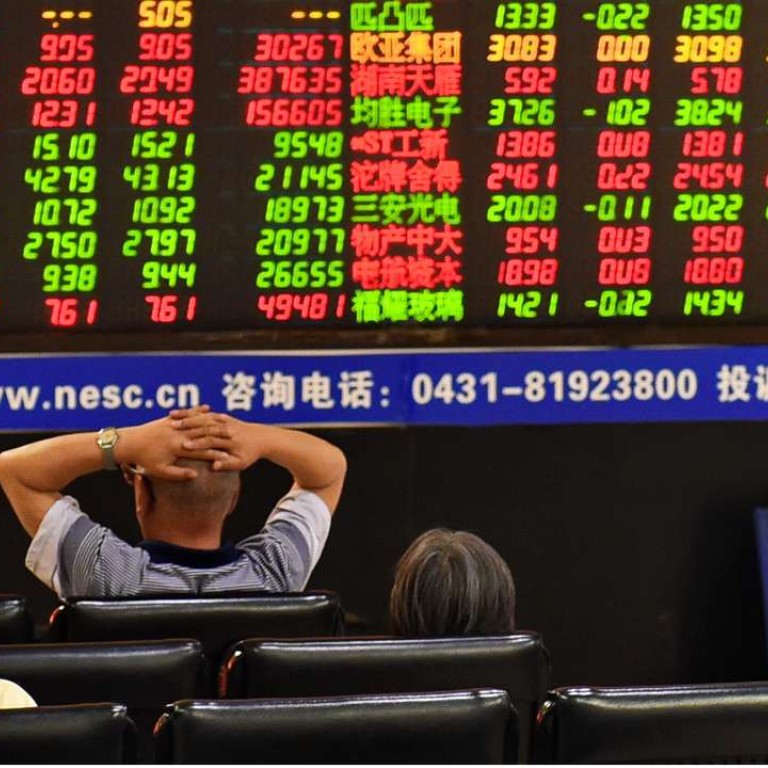
More Chinese takeover attempts seen in the pipeline in the wake of Vanke battle
The high-stakes battle for the control of China Vanke has raised the prospects of more company takeover attempts on mainland Chinese stock exchanges, a trend likely to inject much-needed vigour into the lacklustre market.
As thousands of mainland equity investors have shifted their assets into property over fears of further stock market declines, insurance funds have upped the ante in the secondary market with an insatiable demand for listed companies with solid earnings.
According to data provider Wind Information, 29 A-share firms are involved in takeover attempts by insurance funds after insurance firms posted notices indicating they planned to acquire more than a 5 per cent stake in each company. Under mainland regulations, investors are required to publish a statement after their holdings of a listed firm exceeds 5 per cent, which is considered a message to the market that the shareholder is intent on controlling the target firm with more share purchases.
“It’s just the beginning,” said Shen Ye, a Shanghai-based hedge fund manager. “First, insurers hope to rake in more cash dividends from profitable companies. Second, they might take further action to acquire a controlling stake.”
As the battle for the control of Vanke, the world’s largest home builder, escalated following the massive share buying by Evergrande Group, analysts said the Vanke saga was likely to spawn a clutch of imitators buoyed by insurance funds’ mounting interest in high-profit and high-growth firms.
Prior to the Vanke buying spree, hostile takeovers were rarely seen on mainland stock markets because the majority of public companies were either controlled by governments or state-owned parents.
The single-largest shareholder in a listed firm normally has the power to shape strategies for its long-term development, as well as the right to recommend key board members and executives, and to propose asset restructuring deals.
State-owned publication Securities Daily reported that since the start of 2014, 150 mainland-listed companies have seen their shareholders put up notices for buying more than 5 per cent of their equity via the secondary market.
Companies with sustainable earnings and huge potential to generate fat incomes are certainly favoured by insurers because they chase long-term returns
A combined 300 billion yuan (HK$351 billion) of funds were spent by the investors to increase their holdings in the A-share companies.
Among the 150 companies believed to be potential acquisition targets, a third were darlings of insurance firms, which have total assets of about 13 trillion yuan.
Insurers, after taking a 5 per cent stake and nominating a board member, can implement an accounting practise called the “equity method” to tally their gains and losses from the investment.
Under this method, investors can dodge risks of fluctuations in the companies’ share prices as only the proportional share of the company’s net income or loss is calculated in the investor’s earnings report.
If an insurance investor owns less than 5 per cent of a listed firm, changes in the value of the shares are kept on the investor’s balance sheet.
“Companies with sustainable earnings and huge potential to generate fat incomes are certainly favoured by insurers because they chase long-term returns,” said Wu Kan, head of equity trading at Shanghai-based investment firm Shanshan Finance. “Share buying from insurers can provide a boost to the weak A-share market.”
Mainland financial regulators used to regard hostile takeovers as a threat to the stable growth of the stock market because aggressive purchases of shares could result in big swings in stock prices.
The controversial Vanke saga has prompted regulators to fine-tune existing rules to strengthen oversight on fundraising, information disclosure and cross-market regulations.
Analysts have suggested that regulators take a more positive view on hostile market takeovers because they not only increase liquidity, but also help create a market based on the principles of justice and fairness.
“Shares are listed for trading and anyone can buy or sell them as long as they abide by the rules,” said Wang Feng, chairman of Ye Lang Capital. “Ambitious investors who want to control the companies through buying shares on the exchanges should be welcome.”

